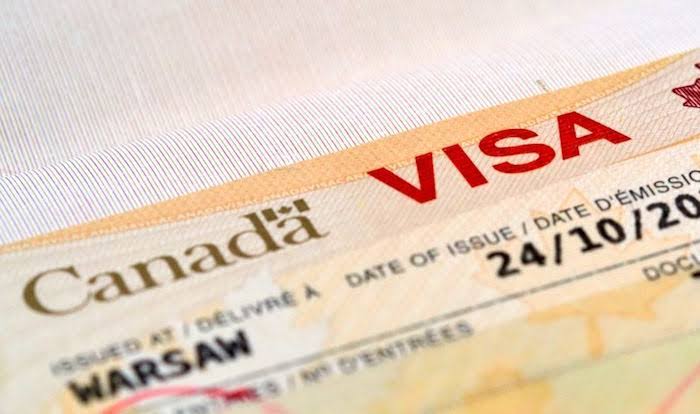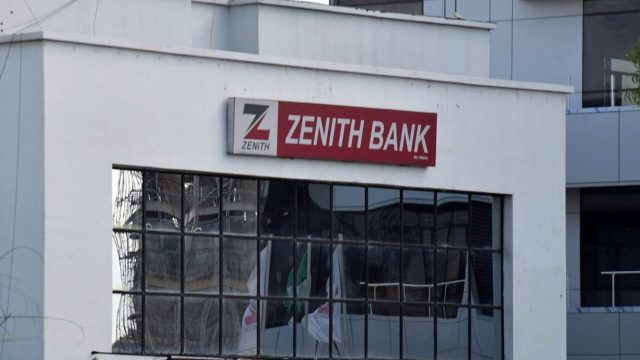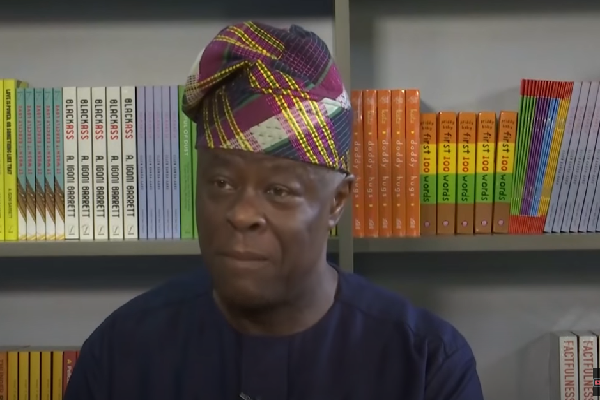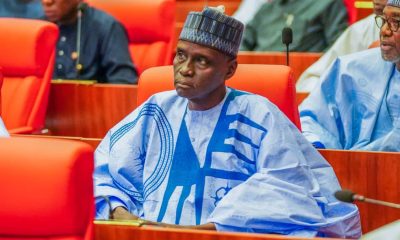Business
Canada targets 485,000 immigrants in 2024 who are skilled workers, care givers

Canada has announced new immigration levels plan for skilled workers, caregivers, families, and other classes.
In a statement on Wednesday, the citizenship and immigration Canada (CIC) said the North American country will target the admission of 485,000 new immigrants.
“In 2025 and 2026, Canada will look to welcome 500,000 new immigrants in each year,” the statement added.
According to the Canadian government, the immigration plans will be for economic, family, refugee, and humanitarian classes.
Categories of the economic classes include high-skilled workers, business owners, and caregivers, while the family option of the immigration plan covers parents, children, and grandparents.
The economic category of the immigration plan recorded the highest slots with about 281,135 immigrants in 2024 – 58 percent of the country’s annual target.
“By 2026, this will rise to 301,250 immigrants, or 60% of the annual target,” the statement added.
Economic immigrants are selected for their skills and ability to contribute to Canada’s economy.
“This plan is tailored to support economic growth while balancing with the pressures in areas like housing, healthcare and infrastructure,” the Canadian government said.
“It charts a responsible course for sustainable and stable population growth.”
“Starting in 2026, the government will stabilize permanent resident levels at 500,000, allowing time for successful integration, while continuing to augment Canada’s labour market.
“The government also plans to take action over the next year to recalibrate the number of temporary resident admissions to ensure this aspect of our immigration system also remains sustainable.”
WHY IS CANADA SEEKING IMMIGRANTS?
Owing to a low birth rate, Canada has continued to record low rates of labour force which in turn, slows down economic growth.
Low economic growth makes it difficult for Canada to raise the taxes it needs to support social spending on services such as education, health care, and other important areas that provide high living standards in the country.
As such, the country heavily relies on economic immigration as a major driver of its revenue.
In 2022, Sean Fraser, Canada’s minister of immigration, refugees and citizenship, said the country was looking to welcome 1,450,000 migrants between 2023 and 2025 to tackle the problem of labour shortage.
In May, Fraser announced the introduction of faster temporary resident visa (TRV) processing and more considerate application measures.
Business
NNPC announces downtime on recruitment portal over unprecedented traffic

The Nigerian National Petroleum Company (NNPC) Limited has announced that its job application portal is currently experiencing downtime due to an ‘unprecedented’ surge in traffic.
On Friday, NNPC announced a recruitment exercise for qualified candidates, with the application period set to close on August 20.
Checks by Vanguard revealed that the agency’s website is displaying server error messages.
In response via X, NNPC stated that their technical team is actively working to resolve the issue.
“Due to unprecedented traffic to the NNPC Ltd. career page from applicants applying for vacancies, the site is currently experiencing slow load times,” the statement reads.
“Our technicians are working diligently to rectify the problem as quickly as possible. Please be assured that the application process deadline remains August 20, 2024.”
NNPC also reassured applicants of a transparent and merit-based recruitment process, urging capable Nigerians to take advantage of this unique opportunity.
Business
Zenith Bank seeks NGX approval to sell 5bn shares through rights issue

Zenith Bank Plc has sought approval from the Nigerian Exchange (NGX) Limited to sell 5.23 billion shares through rights issue to raise N188.37 billion.
According to a statement on Wednesday signed by Godstime Iwenekhai, head of the issuer regulation department at NGX, the qualification date for the rights issue is July 24.
NGX said Zenith Bank applied for the approval through Stanbic IBTC Stockbrokers Limited, the lender’s its stockbroker.
The capital market regulator said Zenith Bank plans to list a rights issue “of Five Billion, Two Hundred and Thirty-Two Million, Seven Hundred and Forty-Eight Thousand, Nine Hundred and Sixty-Four (5,232,748,964) ordinary shares of 50 Kobo each at N36.00 per share on the basis of one (1) new ordinary share for every six (6) existing ordinary shares held as at the close of business on Wednesday, 24 July 2024″.
On April 12, Zenith Bank announced plans to raise an undisclosed amount in the international and Nigerian capital markets.
According to the company, the funds shall be raised through the issuance of ordinary shares, or preference shares, whether by way of private placement, rights issue or both.
The company also said the board would propose increasing its issued share capital — from N15,698,246,893.50 to N31,396,493,787 — at the AGM.
Zenith Bank’s plan to raise capital comes after the Central Bank of Nigeria (CBN), on March 28, directed commercial, merchant and non-interest banks to increase their minimum capital requirements.
CBN adjusted the capital base for commercial banks with international licences to N500 billion, while national and regional financial institutions’ capital bases were pegged at N200 billion and N50 billion, respectively.
With a capital base of N270.75 billion, Zenith Bank needs N229.25 billion to reach the minimum capital requirement of N500 billion.
Business
‘600k households paid’ as FG resumes cash transfer scheme

Wale Edun, the minister of finance, says over 600,000 households have benefited from the direct cash transfer programme of the federal government following the resumption of payments.
Edun spoke on Thursday in Abuja during the half-year review ministerial press briefing, themed, ‘Economic Recovery and Growth: Progress and Prospects 2024’.
On July 18, 2023, President Bola Tinubu ordered an immediate review of the conditional cash transfer scheme — an intervention initiative coordinated by the national social investment programme agency (NSIPA).
The president later suspended all programmes administered by NSIPA for six weeks, as part of a probe of alleged malfeasance in the management of the agency and its programmes.
During a radio interview session in Kaduna, Mohammed Idris, the minister of information and national orientation, disclosed the federal government’s plan to resume the intervention schemes.
Speaking at the press briefing, the minister reiterated Tinubu’s commitment to the welfare of ordinary Nigerians and the government’s efforts to ensure transparency and accountability in its social protection initiatives.
“Following the resumption of payments, over 600,000 households have already received this direct transfer this week,” Edun was quoted as saying in a statement by in a statement on by Mohammed Manga, the ministry’s director of information and public relations.
Edun said the government has made significant strides in its economic reforms, “well on its way to achieving a step-change in the revenues of the government; closely in line with the budget for 2024”.
He also announced the government’s exit from the ways and means borrowing mechanism, highlighting successes of the government’s reforms while citing a projected budget deficit of 4 percent in the 2024 fiscal year.
Edun acknowledged the temporary hardships caused by the reforms but assured that Nigerians would soon benefit from the expected outcomes.
He said the government’s “well-coordinated economic policies are beginning to yield results, evidenced by the deceleration in inflation growth, a rise in foreign investments compared to the same period last year”.
The minister said one of the major priorities of the incumbent government in the immediate term is to reduce food prices and focus on providing all the necessary support to increase local food production, given the impact of high food prices on inflation.
He said efforts are underway to achieve this goal.
The minister said with the outcome of the first half of 2024, “the economy is turning the corner.”
Edun added that with macroeconomic stability, the economy is being well positioned for sustained and inclusive growth that creates jobs, lifts millions out of poverty, and drives domestic and foreign investments that would improve the general wellbeing of the average Nigerian.
-

 Health7 days ago
Health7 days agoWhat to eat and avoid when treating malaria
-

 World1 week ago
World1 week agoComputer scientist claiming invention of Bitcoin faces criminal investigation in UK
-

 Politics1 week ago
Politics1 week agoSenator Monguno replaces Ndume as Senate Chief Whip
-

 Celebrities1 week ago
Celebrities1 week agoMohbad’s wife claims Joseph Aloba is her son’s greatest enemy
-

 Politics1 week ago
Politics1 week agoAppeal court affirms Douye Diri as Bayelsa governor
-

 Politics1 week ago
Politics1 week agoActress Hilda Dokubo suspended as Labour Party’s Rivers chairperson
-

 Politics1 week ago
Politics1 week agoOndo LP Governorship candidate, Dr Ayodele Olorunfemi promises ₦120k minimum wage if elected
-

 Entertainment1 week ago
Entertainment1 week agoRema’s ‘HEIS’ sets record for biggest opening week on Spotify Nigeria in 2024


















